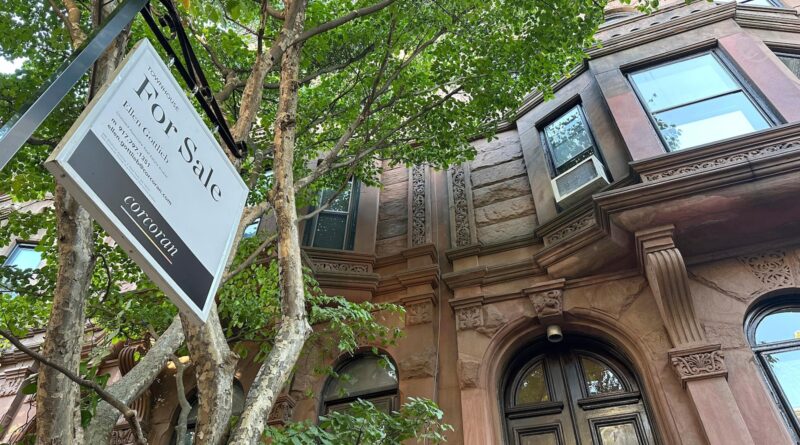In the United States, the average rate of a 30-year mortgage increases for the sixth consecutive week
The average rate on 30-year mortgages in the United States increased for the sixth consecutive week, returning to its highest level since early July.
The rate rose to 6.79% from 6.72% last week, mortgage buyer Freddie Mac said Thursday. This is still a drop from last year, when the rate averaged 7.5%.
Borrowing costs on 15-year fixed-rate mortgages, popular with homeowners looking to refinance their home loan at a lower rate, also rose slightly this week. The average rate rose to 6% compared to 5.99% last week. A year ago, it averaged 6.81%, Freddie Mac said.
When mortgage rates rise, they can add hundreds of dollars per month to costs for borrowers, reducing buyers’ purchasing power at a time when home prices remain near historic highs, even though the real estate market remains in decline in sales. dating back to 2022.
Mortgage rates are influenced by several factors, including the yield on 10-year U.S. Treasury notes, which lenders use as a guide in pricing home loans. Bond yields rose following encouraging reports on inflation and the economy.
This week, bond yields jumped on expectations that President-elect Donald Trump’s plans higher tariffs, lower tax rates and lighter regulation could lead to greater U.S. economic growth, inflation, and government debt.
The 10-year Treasury yield was at 4.36% midday Thursday. It stood at 3.62% as recently as mid-September.
The average rate for a 30-year home loan has not been this high since July 11, when it was 6.89%. At the end of September, the average rate fell to 6.08% – its lowest level in two years – following the decision of the Federal Reserve to lower its main interest rate for the first time in over four years.
Even though the central bank does not set mortgage rates, his political pivot paved the way for a general decline in mortgage rates.
“While we still expect mortgage rates to stabilize through the end of the year, they will likely be at a higher level than markets initially expected before election week,” said Ralph McLaughlin, senior economist at Realtor.com.
The recent rise in mortgage rates has discouraged some potential home buyers. Mortgage applications fell last week for the sixth straight week, sliding 10.8% on a seasonally adjusted basis from the previous week, according to the Mortgage Bankers Association.
Loan applications to refinance a mortgage fell 19%, although they remain 48% higher than the same week last year, when rates were higher.
“Rates and borrower demand will likely remain volatile in the coming weeks as financial markets digest both the election results and the Fed’s upcoming monetary policy decisions,” said MBA CEO Bob Broeksmit.
